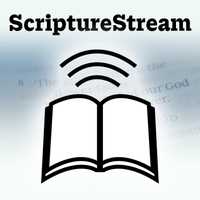- What did the Pharisees believe? (continued)
- High degree of dedication to law and prophets
- Held oral traditions as equally important
- Interpretations by noted rabbis
- Given and relayed by word of mouth
- Committed to writing around 70 AD and after
- Pharisees developed many purity rituals that went far beyond the law. They taught that purity rituals the law required of priests must be followed by all in case a priest ate with someone who had not purified themselves and became unclean.
- Matthew 15:1-11; 23:25-26
- I Peter 2:4-5 – The priesthood is no longer physical. Holiness is not outward but inward.
- Positions developed in schools of law
- Hillel – humane and lenient
- Shammai – strict and severe
- Good motivation, misguided methods
- Talmud: seven kinds of Pharisees
- Shouldering Pharisee – wears good deeds on shoulder (Matthew 6:5)
- Delaying Pharisee – makes everyone wait while he does a good deed
- Bruised Pharisee – walks into a wall to keep from looking at a woman
- Pestle Pharisee – walks head down in false humility
- Ever-reckoning Pharisee – keeps mental balance sheet of good and bad deeds he has done
- Fearful Pharisee – in constant fear of God
- Loving Pharisee – loves God and seeks to keep His commandments
- Talmud: seven kinds of Pharisees
- Some specific beliefs
- Purification applies to all – Mark 7:1
- Interpretation
- Resurrection of the dead
- Divine intervention
- Hellenism
- Free will of man
- Inspiration of oral Torah, Talmud, Mishnah
- Spiritual beings – Colossians 2:18-19
- Essenes
- Pharisees on steroids
- Believed in spiritual afterlife, but no resurrection
- Considered temple eternally impure – did not eat meat
- Most lived communally – I Timothy 4:1-5 could be referring to Essenes
- Best-known community was by Red Sea
- Dead Sea Scrolls believed to have been written by Essenes
- Refused to recognize proselytes and descendants
- Marriage
- Some groups practiced celibacy
- Some required 3-year engagement before marriage
- Communal life
- No ownership or property or servants
- Three-year probation period for new members
- Shared many beliefs with the Pharisees
- More meticulous about purification rituals
- Held to the Torah, Talmud, and Mishnah
- Similar groups in behavior, but not in belief
- Nazareans – law and prophets were fraudulent
- Ossaeans – much like Nazareans
- Sadducees
- Probably named for Zadok
- Upper-tier priests – Acts 4:1-2; 5:17-18; John 1:19-24
- Ruling class
- First appearance as political force
- Supporters for Onias III
- Much of the priesthood joined in
- Pharisees often prevailed in public matters
For further study, see also:
Questions or comments? Join our Discord server for further study.
